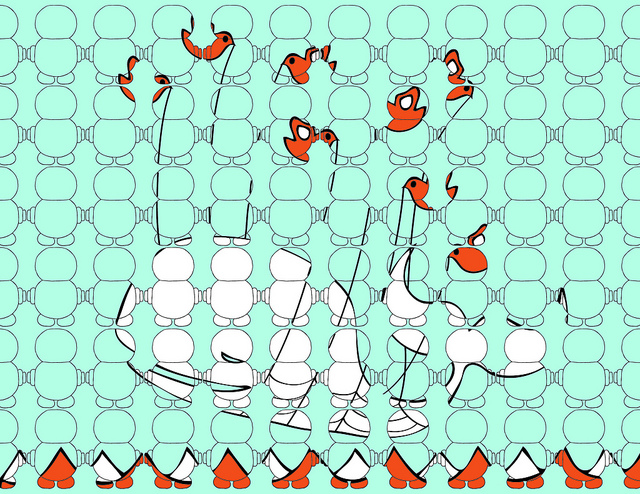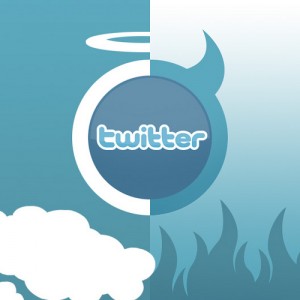 “Listening to a entrepreneurial physicist talking about how to get rich!” Apparently, that was my first tweet. I’ve got no idea who the physicist was, and the get-rich advice must not have been very good—I’m still in journalism. Yet for all my forgetfulness, Twitter remembers the exact moment I came into its life: March 17, 2009 at 13:13:37.
“Listening to a entrepreneurial physicist talking about how to get rich!” Apparently, that was my first tweet. I’ve got no idea who the physicist was, and the get-rich advice must not have been very good—I’m still in journalism. Yet for all my forgetfulness, Twitter remembers the exact moment I came into its life: March 17, 2009 at 13:13:37.
Checking back in my calendar, I see that I was covering a physics meeting, and that reminded me of why I signed up. Twitter was still relatively new to me and others over 30, and I thought it might be a good way to cover a big gathering. Soon afterwards I caught on to Twitter’s other main draw: the opportunity to promote one’s work. I tweeted my stories as a matter of course, awkwardly at first (“My shot at explaining the iron pnictide mania”); then with a growing sense of how to make a succinct pitch in 140 characters (“Breaking lemur news the world must know! They floated on tiny, adorable rafts to Madagascar”). Covering breaking news of a more serious sort, though, I accrued more followers. After the meltdowns at the Fukushima Daiichi nuclear plant in March of last year, my numbers shot up from the hundreds, to more than a thousand.
In Twitter’s world, followers are a proxy for popularity, and who doesn’t want to be more popular? So as my status has grown, I’ve become increasingly obsessed with satisfying those who track me. I’ve noticed that the most successful Twitter users tweet many times a day with links to things that interest them. In principle, tweeting what you read is not a bad way to go, but I spend a lot of my spare time on the Internet meticulously following civil aviation accidents and watching declassified nuclear test films from the 1950s and 1960s. A tweet on the ground acceleration generated by a 1.4 megaton nuclear detonation? It does not get clickthroughs (I did try once).
Instead I’ve found myself coming up with things to tweet that I think will get clicks. Recently I’ve tweeted a viral video about how to build an automatic weapon entirely out of LEGOs, and a gallery of Japanese hipsters taking dubious radiation readings around Fukushima. The tweets themselves never take long, but then I compulsively check for clicks and favorites. Did my followers like it? Did my colleagues retweet it? What else can I come up with?
Even as Twitter expands my reach, I feel it pulling me in. My daily tweets typically involve a small cadre of science journalists and scientist users. Our online banter is easier and more instantly gratifying than picking up the phone to call a source or going out to report a story. Of course, I still do both of these things, often several times a day, but I feel Twitter and other social media like slashdot and reddit are a growing part of my life.
 The consequences of this time suck are difficult to gauge. Many Twitter users more prolific than myself do very good journalism, and I find Twitter invaluable for tracking breaking news stories. I think any negative impact is more on my own ability to sit back and reflect. Life at Nature is already hasty, and being on Twitter has me flitting around more inanely than ever before.
The consequences of this time suck are difficult to gauge. Many Twitter users more prolific than myself do very good journalism, and I find Twitter invaluable for tracking breaking news stories. I think any negative impact is more on my own ability to sit back and reflect. Life at Nature is already hasty, and being on Twitter has me flitting around more inanely than ever before.
Journalism is about finding a balance: between being outside and being inside, for example, or between insight and speed. Twitter doesn’t change any of that, but it is yet another world to get sucked into—another clique to be a part of. Unfortunately for someone like me, this is a clique with metrics. However alluring it may be, the fact remains that it is a very small part of a world that I, as a reporter, am supposed to be covering. I feel that I, and perhaps others, are giving it more attention than it deserves.
Am I going to get off Twitter? Absolutely not. A new Russian Superjet SSJ-100 crashed in Indonesia last week, and I’m following aerospace blogger Sergey Dolya to learn what happened. A photo Dolya took of the cockpit sometime before takeoff shows that the plane’s Terrain Awareness and Warning System may have been switched off. I’ll keep watching his feed to find out more.
___________
Bio: I write for Nature and freelance sometimes for NPR and others. You can follow me on @gbrumfiel.
Photos: whale fail – Jenn and Tony Bot; good Twitter/bad Twitter – Rosaura Ochoa
This makes Twitter sound like an opium den, or a minefield. Pick your slightly inappropriate metaphor. The influential science journalists (like you all) are on the other side, and I have to avoid getting addicted, or blown up.
Twitter is the best thing for breaking news. Other than that, forget it. It’s the worst way to spend your time short of reading youtube comments.